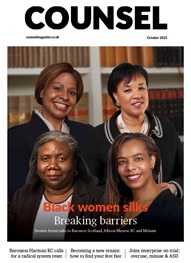*/
Lord Hoffmann has criticised the European Court of Human Rights for behaving like the US Supreme Court on human rights issues.
Delivering the annual Judicial Studies Board lecture in March, Lord Hoffmann reiterated his support for the text of the European Convention on Human Rights, and its embodiment in the Human Rights Act 1998.
However, he questioned the Court’s application of the “margin of appreciation” between universal human rights and the recognition that these are applied by the national courts. “In practice, the Court has not taken the doctrine of the margin of appreciation nearly far enough,” he said. “It has been unable to resist the temptation to aggrandise its jurisdiction and to impose uniform rules on Member States. It considers itself the equivalent of the Supreme Court of the United States, laying down a federal law of Europe.” While “the practical expression of concepts” may change over the years, the Court was not entitled to “introduce wholly new concepts, such as the protection of the environment, into an international treaty which makes no mention of them, simply because it would be more in accordance with the spirit of the times,” he said.
While the UK legal system was not “perfect”, Lord Hoffmann argued that “detailed decisions about how it could be improved should be made in London, either by our democratic institutions or by judicial bodies which, like the Supreme Court of the United States, are integral with our own society and respected as such”.
Delivering the annual Judicial Studies Board lecture in March, Lord Hoffmann reiterated his support for the text of the European Convention on Human Rights, and its embodiment in the Human Rights Act 1998.
However, he questioned the Court’s application of the “margin of appreciation” between universal human rights and the recognition that these are applied by the national courts. “In practice, the Court has not taken the doctrine of the margin of appreciation nearly far enough,” he said. “It has been unable to resist the temptation to aggrandise its jurisdiction and to impose uniform rules on Member States. It considers itself the equivalent of the Supreme Court of the United States, laying down a federal law of Europe.” While “the practical expression of concepts” may change over the years, the Court was not entitled to “introduce wholly new concepts, such as the protection of the environment, into an international treaty which makes no mention of them, simply because it would be more in accordance with the spirit of the times,” he said.
While the UK legal system was not “perfect”, Lord Hoffmann argued that “detailed decisions about how it could be improved should be made in London, either by our democratic institutions or by judicial bodies which, like the Supreme Court of the United States, are integral with our own society and respected as such”.
Lord Hoffmann has criticised the European Court of Human Rights for behaving like the US Supreme Court on human rights issues.


Justice system requires urgent attention and next steps on the Harman Review
Q&A with Tim Lynch of Jordan Lynch Private Finance
By Marie Law, Director of Toxicology at AlphaBiolabs
By Louise Crush of Westgate Wealth Management
Why Virtual Assistants Can Meet the Legal Profession’s Exacting Standards
Six months of court observation at the Old Bailey: APPEAL’s Dr Nisha Waller and Tehreem Sultan report their findings on prosecution practices under joint enterprise
The Amazonian artist’s first international solo exhibition is wholly relevant to current issues in social and environmental justice, says Stephen Cragg KC
Despite its prevalence, autism spectrum disorder remains poorly understood in the criminal justice system. Does Alex Henry’s joint enterprise conviction expose the need to audit prisons? asks Dr Felicity Gerry KC
Until reforms are instituted and a programme of training is introduced, expert opinion on intimate partner abuse remains vital to realigning the tilted scales of law and justice, writes Professor Susan Edwards
It’s been five years since the groundbreaking QC competition in which six Black women barristers, including the 2025 Chair of the Bar, took silk. Yet today, the number of Black KCs remains ‘critically low’. Desirée Artesi talks to Baroness Scotland KC, Allison Munroe KC and Melanie Simpson KC about the critical success factors, barriers and ideas for embedding change